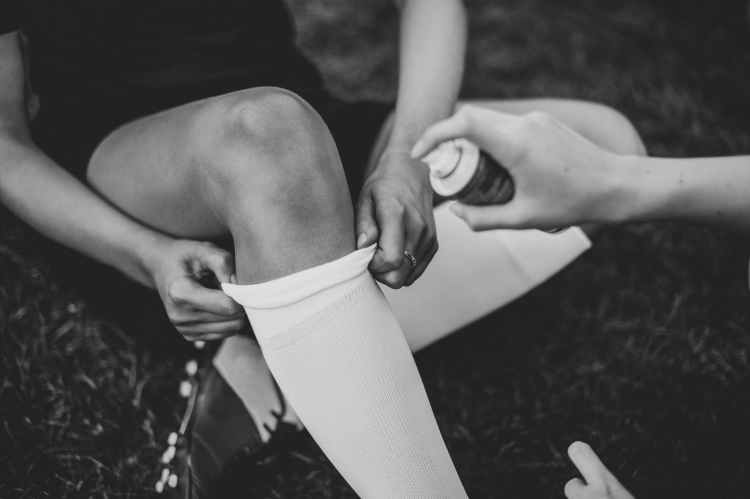This page contains a list of research related to the psychological aspects of sports injury published in 2019. Its aim is to be a resource for students and researchers investigating the topic. It is a ‘work in progress’ and will be updated throughout the year. If you are aware of a piece of research that you think should be added to this list please add it using the ‘leave a reply’ box at the bottom of the page. Please note that inclusion in this list does not count as an endorsement of the article.
![]()
Annear, A., Sole, G. & Devan, H. (2019). What are the current practices of sports physiotherapists in integrating psychological strategies during athletes’ return-to-play rehabilitation? Mixed methods systematic review. Physical Therapy in Sport.
Arvinen-Barrow, M., Maresh, N. & Earl-Boehm, J. (2019). Functional outcomes and psychological benefits of active video gaming in the rehabilitation of lateral ankle sprains: A case report. Journal of Sport Rehabilitation.
Bateman, A. & Morgan, K.A.D. (2019). The postinjury psychological sequelae of high-level Jamaican athletes: exploration of a posttraumatic stress disorder–self-efficacy conceptualization. Journal of Sport Rehabilitation.
Beischer, S. et al. (2019). How is psychological outcome related to knee function and return to sport among adolescent athletes after anterior cruciate ligament reconstruction? American Journal of Sports Medicine.
Bejar, M.P. et al. (2019). Athletic trainers’ influence on national collegiate athletic association division I athletes’ basic psychological needs during sport injury rehabilitation. Journal of Athletic Training.
Burland, J.P. et al. (2019). Psychosocial barriers after anterior cruciate ligament reconstruction: a clinical review of factors influencing postoperative success. Sports Health.
Conti, C. et al. (2019). The Injury-Psychological Readiness to return to sport (I-PRRS) scale and the Sport Confidence Inventory (SCI): A cross-cultural validation. Physical Therapy in Sport.
Conti, C., di Fronso, S., Pivetti, M., Robazza, C., Podlog, L. & Bertollo, M. (2019). Well-come back! Professional basketball players perceptions of psychosocial and behavioural factors influencing a return to pre-injury levels. Frontiers in Psychology.
De Baets et al. (2019). The influence of cognitions, emotions and behavioral factors on treatment outcomes in musculoskeletal shoulder pain: a systematic review. Clinical Rehabilitation.
Driver, C. et al. (2019). Exploring physiotherapists’ considerations regarding the use of psychosocial strategies in practice. Physiotherapy Research International.
Hess, C.W., Gnacinski, S.L. & Meyer, B.B. (2019). A review of the sport injury and rehabilitation literature: from abstraction to application. The Sport Psychologist.
Johnston, R. et al. (2019). General health complaints and sleep associated with new injury within an endurance sporting population: A prospective study. Journal of Science and Medicine in Sport.
Kaye, J.A. & Alexanders, J. (2019). Rehabbing the mind within anterior cruciate ligament rehabilitation: Are we addressing patients’ expectations? Athletic Training & Sports Health Care.
Kerai, S., Wadey, R. & Salim, J. (2019). Stressors experienced in elite sport by physiotherapists. Sport, Exercise, and Performance Psychology.
Kraemer, E. et al. (2019). Athletic trainers’ perceptions and experiences with interprofessional practice. Health, Interprofessional Practice & Education.
Lichtenstein, M.B. et al. (2019). Do exercisers with musculoskeletal injuries report symptoms of depression and stress? Journal of Sport Rehabilitation.
MacDougall, H.L. et al. (2019). Low Back Pain Treatment by Athletic Trainers and Athletic Therapists: Biomedical or Biopsychosocial Orientation?. Journal of Athletic Training.
Olmedilla, A. et al. (2019). Psychological intervention program to control stress in youth soccer players. Frontiers in Psychology.
Slagers, A.J. et al. (2019). Responsiveness of the anterior cruciate ligament – Return to Sports after Injury (ACL-RSI) and Injury – Psychological Readiness to Return to Sport (I-PRRS) scales. Journal of Sports Sciences.
Vann, S.E., Moore, M., Freiburger, K. & Johnson, H. (2019). The end is not the injury: Posttraumatic growth after sport injuries. Journal of Amateur Sport, 4(2).
Wadey, R. et al. (2019). Can preinjury adversity affect postinjury responses? A 5-Year prospective, multi-study analysis. Frontiers in Psychology.
Wadey, R. et al. (2019). Sport psychology consultants’ perspectives on facilitating sport injury-related growth. The Sport Psychologist.
Webster, K.E. et al. (2019). Factors associated with a return to preinjury level of sport performance after anterior cruciate ligament reconstruction surgery. The American Journal of Sports Medicine.
You may also wish to refer to the following posts on this site:
- New research (2018): Psychological aspects of sports injury
- New research (2017): Psychological aspects of sports injury
- New research (2016): Psychological aspects of sports injury

One thought on “New research (2019): Psychological aspects of sports injury”